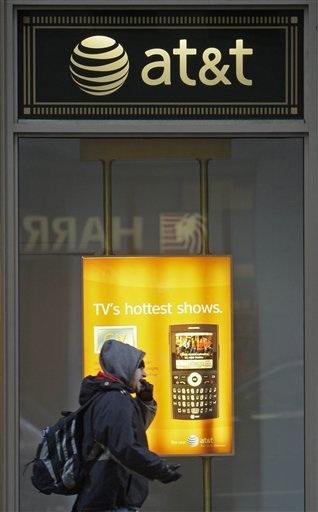I’m tired of Luke Wilson’s smug face.I’m tired of hearing about how AT&T covers “97 percent of America” and how “AT&T’s got ya covered.”I’m tired of seeing Wilson on TV flipping out postcards, accepting friend requests and watching Verizon’s map “fall apart.”I’m tired of it.I fortunately don’t have AT&T. I don’t have to deal with dropped calls, poor 3G coverage or a washed-up actor as my cell carrier’s spokesperson.It’s no secret AT&T has been top dog lately when it comes to number of customers in the cell phone market. Of course, this recent stint at the top is thanks to Apple’s “Jesus phone” exclusivity to the AT&T network since its release in 2007.The smartphone market was dim at best before the release of the iPhone. Sure there were the “suits” who owned a BlackBerry and could check their e-mail and stock figures on the go.There were also phones running on Microsoft’s Windows Mobile — and that’s about all that needs to be said on “WinMo.” Let’s just say it wasn’t the friendliest platform to run on.Given that, the smartphone craze ignited when the iPhone initially launched. Everyone wanted to drop his or her carrier and switch to AT&T to play with Steve Jobs’ newest toy.And no one has been able to stop this AT&T/iPhone train until recently. Carriers tried, and carriers failed.But it may be time to start putting the cork back in the bottle if you’re AT&T — because you’ve got some competition on your heels.In October 2008, T-Mobile released the G1 (or HTC Dream) — the first smartphone to run Google’s new phone operating system (OS), Android.More and more handsets slowly supported Google’s open-source OS. But Android couldn’t climb the giant iPhone mountain — even with the support of multiple carriers and multiple handsets.Around 70 percent of the United States’ Mobile OS traffic share belonged to the Apple iPhone (and, concordantly, AT&T) back in May 2009, according to tech blog Gizmodo.That’s nearly three-quarters of smartphone users.Palm’s WebOS didn’t exist yet, and RIM (BlackBerry) held a distant second around 17 percent, while WinMo and Android both sat around 7 percent.Fast-forward to today, and those numbers have changed dramatically.The same study showed Android OS traffic in the U.S. skyrocketed to 40 percent by February 2010, while the iPhone dropped to around 45 percent.”Ruh-roh, Rhaggy.”For too long AT&T and Apple has had a stranglehold on the smartphone marketplace. For too long, I have put off buying a smartphone because nothing could really compete with the iPhone. For too long, I have not bought an iPhone because I want my cellular network to work.For those like me who are tired of the smartphone monopoly held by the unholy union of AT&T and Apple, I’ve said it before and I’ll say it again: Buy Android.Google’s open-source OS is where the future lies, folks.But I know there are the Apple purists out there, and, while I disagree with most of your beliefs and sayings, there is still hope for you yet.Strong rumors (remember, the key word is “rumor”) point to the iPhone making its debut to Verizon this summer.This is huge news for iPhone users who would like a reliable 3G network wherever they go. Verizon’s 3G network is clearly superior — no matter what Luke Wilson may tell you.Sprint is also making a big push at AT&T with the release of the HTC Evo this summer — the first ever WiMAX 4G smartphone (fully equipped with Android, I might add).So if you’re tired of dropped calls and lousy 3G connections on your smartphone, know there is more out there than the iPhone on AT&T.If you’re someone who loves his iPhone and has had no trouble with AT&T, good for you — consider yourself lucky.Competition never hurt anyone, and people love to see the underdog win. So, is it March Madness time again yet?Adam Arinder is a 20-year-old communication studies junior from Baton Rouge. Follow him on Twitter @TDR_aarinder.
—-Contact Adam Arinder at aarinder@lsureveille.com
Press X to Not Die: AT&T/iPhone monopoly finally has competition
April 22, 2010










